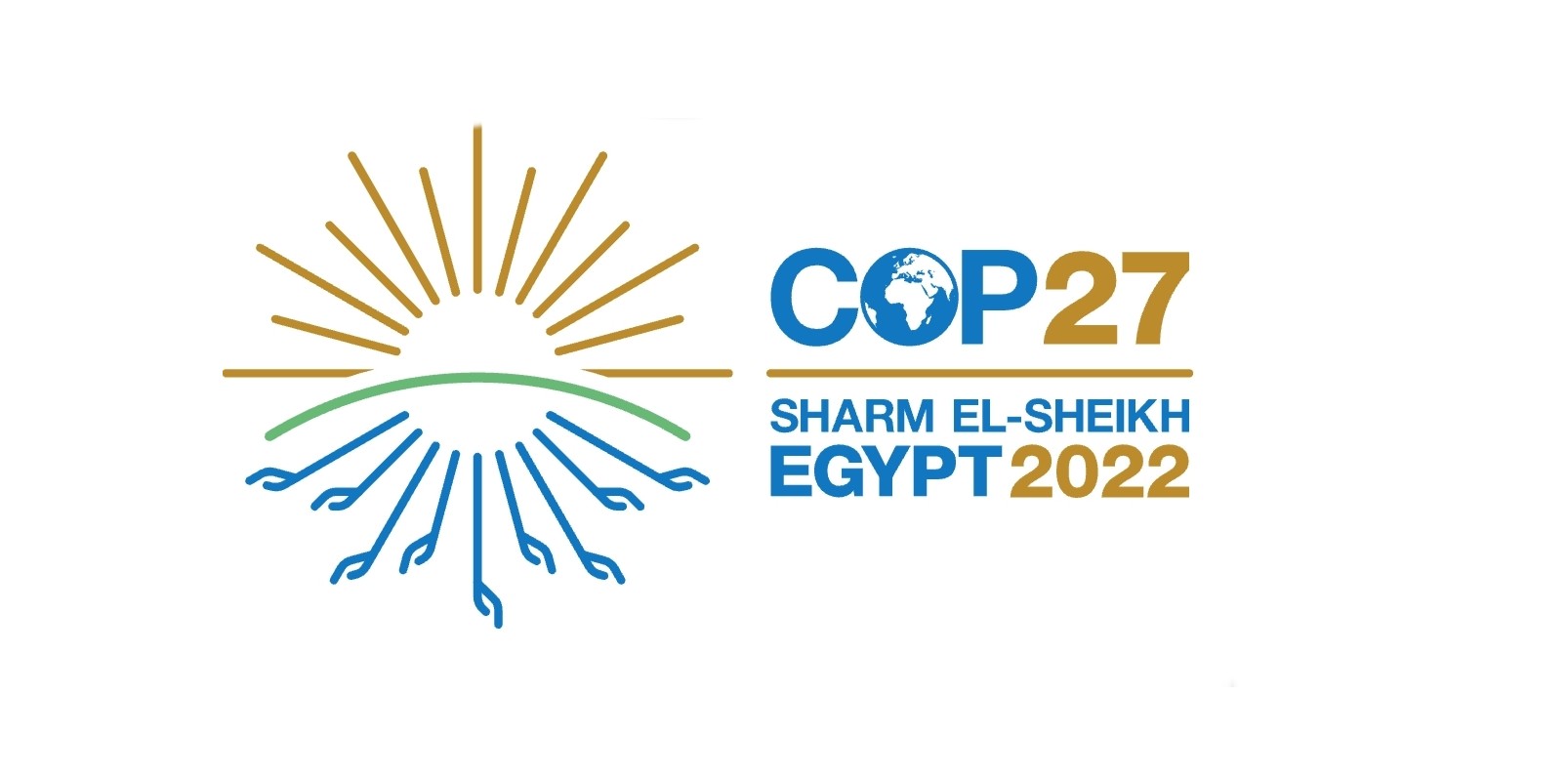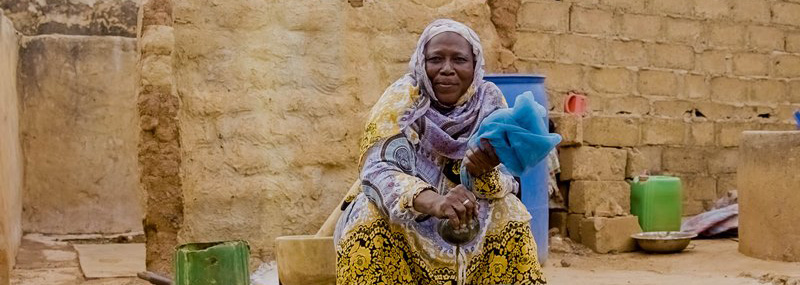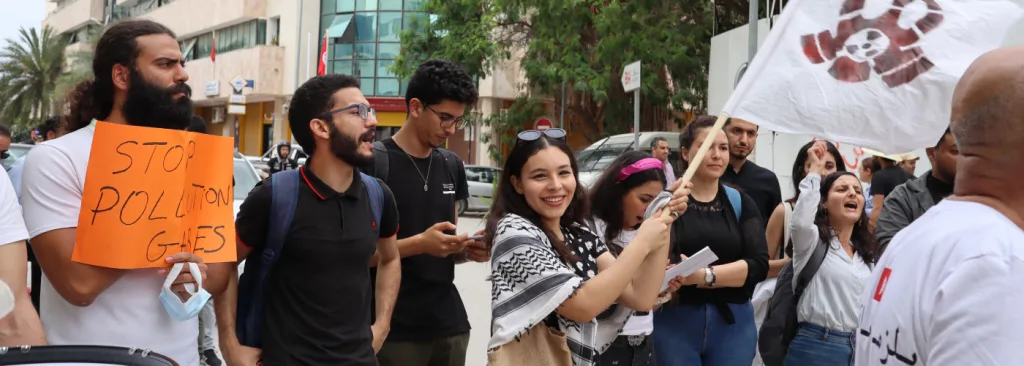Hivos and our partners will be in full force at the 27th UN Climate Change Conference of the Parties (COP27) held in Sharm El-Sheikh, November 6 to 18, 2022. The COP27 summit will bring parties together to accelerate action towards achieving the goals of the Paris Agreement and the UN Framework Convention on Climate Change. The conference is a crucial forum for unifying global efforts to tackle the climate crisis.
With Climate Justice central to our agenda, we and our partners will host and participate in a variety of side events focusing on the core issues of climate justice – from pushing for more climate finance to reach locally led solutions to accelerating a gender-just energy transition. Here is an overview of the issues central to each event, and when and where they will take place.
Financing Fairly: The transparency and climate performance of development finance institutions in Africa
- Thursday November 10, 15:00 – 16:30
- Hatshepsut Side Event Room
- Organized by Fair Finance Southern Africa and moderated by Hivos’ CEO
Civil society organizations’ engagement with Public Finance Institutions (PFIs) is essential for ensuring that a new, sustainable development agenda has people at its core. Organized by the Fair Finance Southern Africa coalition and moderated by Hivos’ CEO Anne Jellema, the side event will launch the coalition’s PFI policy assessment report. It assesses the public lending and investment policies of six financial institutions by comparing them to international standards and best practices, using the Fair Finance Methodology. Their policies are assessed according to eight themes: climate change, corruption, gender equality, human rights, labor rights, nature, power generation, and transparency & accountability. The results of the assessment will be released during this side event, which will include conversations with people directly affected by PFI funding decisions and responses from representatives of PFIs.
Launch and press conference: Building approaches to fund local solutions with climate evidence
- November 11, 16:30-17:00
- Blue Zone
- Organized by Fundación Avina and the BASE task force, including VCA
Together with Fundación Avina and others, the Voices for Just Climate Action (VCA) program, in which Hivos is a partner, is launching BASE: a task force designed to tackle one of the barriers that prevents climate funds from reaching the local level by building a climate rationale. BASE aims to pragmatically tackle this problem by bringing together stakeholders and initiatives working on a just transition and climate finance. It will implement grantmaking schemes that generate evidence of climate impact which can be used as a proof of concept in advocating to change current climate finance practices for local solutions. Check the BASE website for more information about the initiative and its launch.
Locally led adaptation principles in practice
- November 12, 09:30-11:00
- Benelux pavilion
- Organized by Voices for Just Climate Action and the Netherlands Ministry of Foreign Affairs
Climate change and the loss of nature are two of the most pressing and urgent issues of our time. Their impacts are deeply unequal, hitting hardest the world’s most disadvantaged groups, such as women, children, Indigenous Peoples and local communities, who often rely directly on natural resources for their survival. More than ever, these local actors must be central to all decision making and efforts to combat these crises.
Recognizing the importance of local actors and their extensive local, intergenerational, indigenous, traditional and cultural knowledge, over 80 organisations (including the Dutch government) endorsed the Principles of Locally Led Adaptation (LLA) at COP26 in 2021. This session aims to bring the local agenda forward by providing a space for those directly involved in LLA to share their experiences. It will therefore draw on lessons learned, address key barriers and identify opportunities to moving this critical agenda forward.
Where is the money for a gender-just energy transition?
Women and girls are particularly vulnerable to climate change and suffer from energy poverty, but they are also key agents of change for climate action. Despite the wide recognition that supporting gender equality contributes to sustainable energy for all and vice versa, gender-smart climate finance for a just and inclusive energy transition lags behind. A key reason for this is that financial mechanisms tend to be gender-blind, and fail to include the needs and rights of women and girls.
Amid the ambitious commitments being made by the international community, panelists in this event will explore the current financing landscape for gender-equality for a just and inclusive energy transition and how adequate financial resources can materialize to reach women and meet their practical as well as strategic needs.
Link for virtual participation: https://webapp.spotme.com/login/eventspace/SEforALLCOP27
Accelerating gender-smart and socially inclusive climate finance through public and private investments
- November 14, 11.30-13.00,
- Blue Zone
- Organized by European Investment Bank, Hivos, and Council of Europe Development Bank
If we are to address two of today’s most pressing challenges – increasing global average temperatures and rising inequalities – there is an urgent need to accelerate gender-smart and socially inclusive climate finance. Applying a gender and social inclusion lens to climate finance and vice versa aims to address gender disparities and better inform investment decisions. This will lead to enhanced business and climate outcomes, inclusive economic growth and women’s empowerment.
This event will explore how gender-smart and socially inclusive climate finance is being advanced by international financial institutions and public and private sector actors. It will look at the multiplying effects that such investments have for women, society and the climate. With concrete examples from both the private and the public sector and civil society representatives, it will give an idea of how investment and finance flows can better reach those most affected by climate change and who can also be most effective at accelerating change.
City-region food systems: strengthening resilience against multiple shocks and stresses
- November 17, 11:30-12:30
- Food and Agriculture Pavilion
- Organized by the Resilient Cities Network, RUAF/Hivos, FAO, CGIAR, Arup, and ICLEI
More than half of the world’s population lives in urban areas, and 80 percent of all food produced globally is destined for consumption in urban spaces. Given that cities are rarely ever able to produce enough food to feed their inhabitants, they are intrinsically connected with their surrounding peri-urban and rural areas by flows of people, goods, food, natural resources and ecosystem services.
Over the past year, cities have had to manage increasing food-related shocks and stresses, given the climate crisis, the war in Ukraine and the knock on effects of the Covid-19 pandemic. Even as they seek solutions, cities are also responsible for 2.8 billion tons of organic waste every year, most of it food.
So there is an urgent need for cities to pivot towards more resilient and regenerative systems. Partners at this session will explain the city-region food systems approach and share recommendations from a multi-city campaign, Urban Eats, as pathways to building food resilience. The session will showcase examples from cities that have taken up the city-region perspective or adopted circular practices, and the impact that has had on enhancing their food resilience.






